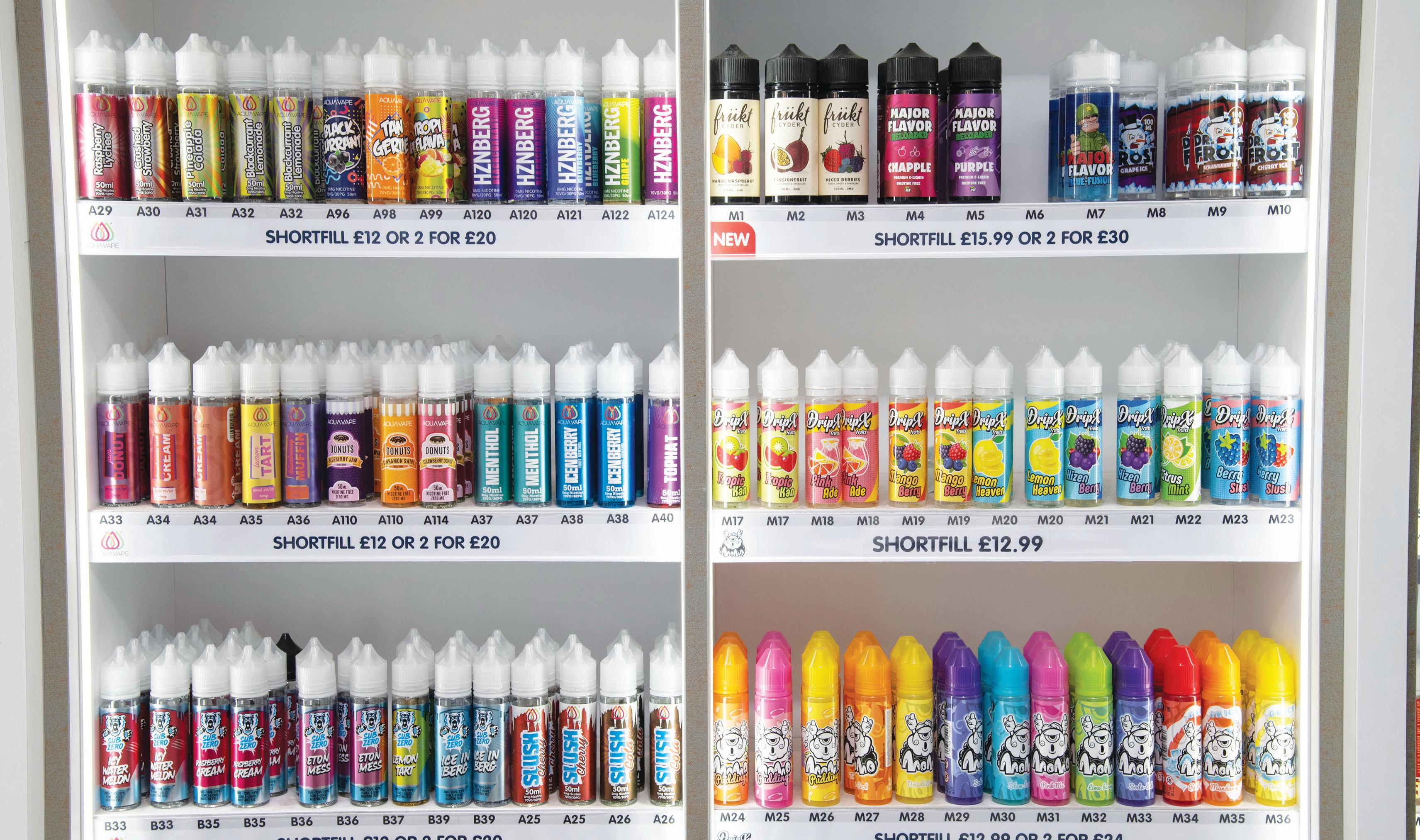
4 minute read
NFRN NEWS
from RN - 4 March 2022
In partnership with
West Midlands
Success for retail crime prevention programme
by Suhara Pavithri Jayasena
suhara.jayasena@newtrade.co.uk
A pilot scheme designed to prevent repeated shoplifting has been hailed as a success.
The initiative launched by the West Midlands Police last year is designed to stop criminals with alcohol- and drug-abuse issues from committing further offences.
Speaking at the allparty parliamentary group on retail crime last week, West Midlands assistant police and crime commissioner Tom McNeil said the scheme had “made a real dent in the issue of retail crime and crime in general”.
He claimed it had saved around £2m in theft over the past six months.
McNeil added: “The scheme is a partnership between the police, rehabilitation centres and retailers who have all invested time and money to tackle the issues of persistent offenders to help them change their chaotic lifestyles and turn their lives around.
“The process is still about justice and safety of the public first.
“It’s also about making a multi-faced approach so that repeat offenders can get the help they need to change their ways, rather than being passed around from one organisation to another.”
However, independent retailers in the West Midlands were sceptical about whether the scheme would tackle the full extent of retail crime, but told RN it was a “step in the right direction”. Julia Bywater, of Bywater News in Dudley, said: “Although this scheme is a step in the right direction, we will have to see how successful it is in tackling retail crime, which is an ongoing issue. In most cases, the people they are rehabilitating do not want to be helped.
“It is about seeing how many of them are rehabilitated and do not just return to crime once released. We have a lot of drug- and gang-related crime in Dudley, so if successful, this will help tackle those issues.”
Bywater added that the only real way to reduce retail crime is to introduce an offence against abuse and violence towards shopworkers, similar to legislation already introduced in Scotland.
The NFRN is acting as the secretariat for the APPG and has consistently lobbied MPs to clamp down on retail crime.
NFRN national president Narinder Randhawa, whose own business is based in the West Midlands, emphasised the importance of tackling retail crime. “Attacks on shopworkers is one of the biggest issues facing our industry,” he said.
“I am pleased to see the West Midlands PCC and police taking steps to address the problem.
“I hope other PCCs and forces take note and follow the example set by the West Midlands in a bid to break the cycle of repeat offending.”
Head office
Live delivery update tech explored
Newspaper publishers and wholesalers confirmed they are exploring new ways of using technology to issue live updates on paper deliveries.
The announcement came after a summit, organised by the NFRN, attended by leading newspaper publishers and Smith News and Menzies on 16 February.
Retail subscription and home news delivery were identified as an opportunity for retailers. It was also stressed that help was required from all sides of the industry to help independent retailers with no prior experience of stocking print titles.
NFRN members shared experiences around the handling and returns processes for vouchers, and publishers and wholesalers agreed to look into the principles of making these paperless.
It was also deemed important to create one database of home news delivery retailers and to ensure the data was refreshed regularly.
Speaking after the summit, NFRN national president Narinder Randhawa said: “Buying a newspaper is still one of the key reasons for customers to come into our members’ stores, so it is important the printed word survives and thrives, but it is equally important independent retailers get the level of service they deserve.”
Smiths News chief executive Jon Bunting added: “We all left with a common understanding of the areas we will look to tackle first.”
Scotland
Covid-19 measures reduced
Covid-19 restrictions in Scotland are set to end on 21 March, including the wearing of face coverings.
First minister Nicola Sturgeon unveiled the Scottish government’s revised plans for tackling Covid-19 last week.
At the moment, businesses have a legal requirement to take steps to reduce the risk of Covid19 spreading, including social distancing and the use of protective screens
These legal requirements will also end on 21 March.
However, unlike England, where all restrictions ended on 24 February, Sturgeon revealed that rules on selfisolation would remain in place.
Those who test positive for Covid-19 in Scotland will be allowed to leave self-isolation after seven days if they show no symptoms and record two negative lateral-flow tests.
Head office
Hale takes up COO seat
Stuart Hale started his new role as the NFRN’s chief operating officer, following the announcement of his appointment in late December.
Hale took over the role on 21 February and will be based at the NFRN’s head office in Durham.
Commenting on his new role, he said: “There’s a huge challenge in terms of giving members value for money and for them to understand the value of their membership, but it’s a challenge I am looking forward to.”







